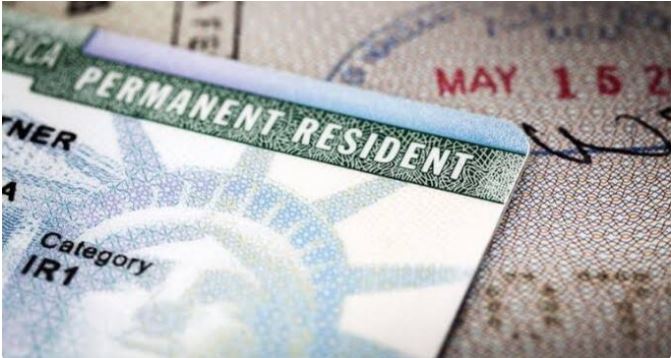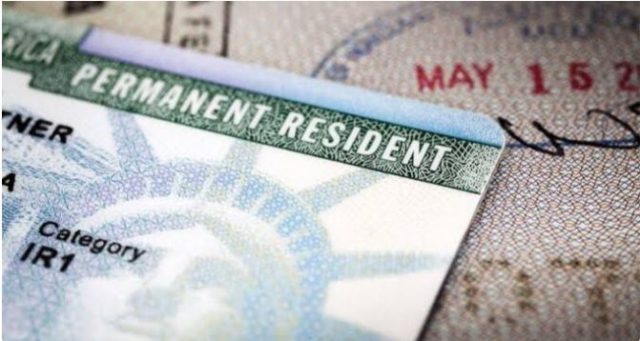
Nigeria is the only African country currently excluded from participating in the 2022 US diversity visa lottery.
Online registration for the DV-2022 programme began on October 7, and will end on November 10, 2020.
While the details of Nigeria’s current exclusion are not different from that of the 2021 US DV lottery released in 2019, the ban dates back to 2015.
Before 2015, according to documents seen by TheCable, more than three million entries were received from Nigerians for the DV lottery in 2013 and 2014.
Within the same two-year period preceding 2015, among African countries, Nigerians were issued the second highest number of slots in the DV lottery — after Egypt; Nigerians received 5,741 visas for both years, while Egypt natives got 6,883 within the same period.
However, for Egypt, eligibility for the 2022 DV lottery is on the basis of “chargeability”.
“Persons born in the areas administered prior to June 1967 by Israel, Jordan, Syria, and Egypt are chargeable, respectively, to Israel, Jordan, Syria, and Egypt. Persons born in the Gaza Strip are chargeable to Egypt; persons born in the West Bank are chargeable to Jordan; persons born in the Golan Heights are chargeable to Syria,” the statement noted.
“Because there is a numerical limitation on immigrants who enter from a country or geographic region, each individual is charged to a country. Your chargeability refers to the country towards which limitation you count. Your country of eligibility will normally will be the same as your country of birth.
“However, you may choose your country of eligibility as the country of birth of your spouse, or the country of birth of either of your parents if you were born in a country in which neither parent was born, and in which your parents were not resident at the time of your birth. These are the only three ways to select your country of chargeability.”
WHY ARE NIGERIANS NOT ELIGIBLE?
While no single country is allocated more than seven percent of the available DV slots for each year, Nigeria is currently missing from the 2022 list.
“Nigerians are no longer eligible for the Diversity Visa Lottery. Only people that were born outside of Nigeria or have parents that were born outside of Nigeria are eligible for the Diversity Visa. If you were born in Nigeria to Nigerian born parents, you are not eligible for the visa lottery,” a statement on the US embassy website read.
At least 20 countries have been excluded from applying for the 2022 DV lottery, and this is because more than 50,000 persons from each of the affected nations have moved to the US within the five years preceding the country’s first ban in 2015.
“For DV-2022, persons born in the following countries are not eligible to apply, because more than 50,000 natives of these countries immigrated to the United States in the previous five years: Bangladesh, Brazil, Canada, China (including Hong Kong SAR), Colombia, Dominican Republic, El Salvador, Guatemala, Haiti, Honduras, India, Jamaica, Mexico, Nigeria, Pakistan, Philippines, South Korea, United Kingdom (except Northern Ireland) and its dependent territories, and Vietnam,” another statement on the 2022 DV lottery read.
“DVs are intended to provide an immigration opportunity for persons who are not from ‘high admission’ countries. U.S. law defines ‘high admission countries’ as those from which a total of 50,000 persons in the Family-Sponsored and Employment-Based visa categories immigrated to the United States during the previous five years.
“Each year, U.S. Citizenship and Immigration Services (USCIS) counts the family and employment immigrant admission and adjustment of status numbers for the previous five years to identify the countries that are considered ‘high admission’ and whose natives will therefore be ineligible for the annual Diversity Visa program.
“Since USCIS makes this calculation annually, the list of countries whose natives are eligible or not eligible may change from one year to the next.”
Meanwhile, in recent times, there have been announcements on US visa bans listing Nigeria as one of the affected countries.
In September, new guidelines from the Department of Homeland Security (DHS) showed that Nigerian students risk being barred from four-year courses in the US.
In January, the US had also imposed an immigrant visa ban on Nigeria as a result of the country’s failure to comply with its established identity-management and information-sharing criteria, but the restriction is currently under review.
Source: The CableNG







